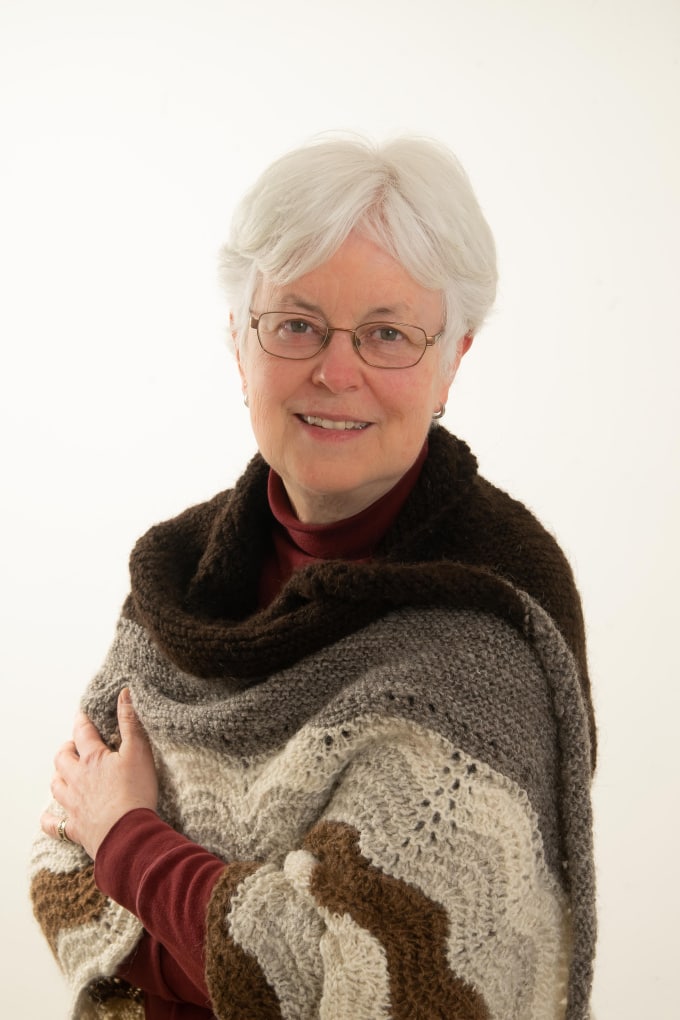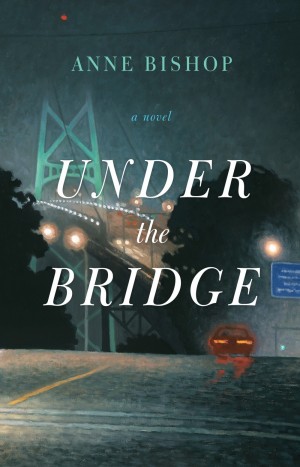KJIPUKTUK (Halifax) – Under the Bridge, by Nova Scotia author Anne Bishop, is a novel I read this summer that I haven’t yet been able to put out of my mind. It’s that good.
It’s a complex book, with lots of subplots, and I will not even try to summarize how the story unfolds. Let me just say here that Lucy, the main protagonist, is an older woman who finds herself homeless and mentally fragile after a life of activism. In particular an experience early on in Guatemala, catches up with her.
Here are a couple of reasons why I like this book so much.
Under the Bridge takes place in Halifax, my own beloved city. To me that immediately makes a book more engaging (and Halifax more interesting). I haven’t enjoyed a novel set in Halifax this much since I read the Motorcyclist by George Elliott Clarke. Oh, and that bridge in the title, it’s the MacDonalds Bridge.
Under the Bridge is a novel that puts politics front and centre, where it belongs. What I mean here is that it recognizes politics for what it is, the force that shapes people’s lives, the way austerity does for instance. Many people in the novel are poor, and again, they are poor for reasons that have a lot to do with politics. The way they resist, sometimes without even realizing it, is political as well.
And finally, it’s just a very good read. It’s a moving, warmhearted novel, the kind where you want to know what happens next, you want to know how it ends.
So yes, I highly recommend it. Go buy it, or go borrow it.
I have the best job. I got to interview Anne earlier this week when we met up in a coffee shop in Windsor. I asked her about the writing of the novel, how it turned out the way it did, and, political animals that we both are, we talked about what happened to all that energy that drove anti-poverty activism in Halifax in the nineties, and much more.

This being your first shot at writing fiction, what gave you the courage, or confidence, to write such a complex and ambitious book?
Earlier in my life I wrote a book about allies (Becoming an ally), and its last chapter is about hope, about where a social justice activist finds hope. And I basically said there that we can’t think of hope as a static thing, it can’t be a bet on an outcome, it has to be just a sense that you’re compelled to move forward. That was also how I experienced writing Under the Bridge.
Another way to answer that question is to say that the book is a record of my thinking about these issues. But what you need to understand is that it was written over 10 years, and that it took 15 full drafts. Of course my thinking evolved over these 10 years. If you are working on a sculpture for 10 years, adding details, changing details, adding layer after layer, you’d end up with a very complex sculpture. It’s the same for this book. All I can say is, thank goodness for computers!
I was talking to a friend who said she cried over the ending, and I replied, Oh, I cried over the ending every time I rewrote it.
The other thing I really appreciate is how you centre the political. Poverty and activism aren’t just part of the landscape wherein the story unfolds, they’re an integral part of the novel.
Yes, that was in many ways the point. Except, I certainly didn’t want it to overwhelm the story. It’s a human story, and I don’t think anybody keeps reading a novel that isn’t a human story first.
There is this idea out there that you can’t write fiction about social justice issues because it’s too didactic, that it’s something besides the story. When I hear that I get really angry. These human beings I write about are political and think politically and are totally committed to social justice. Lucy and her friends have all dedicated their lives to social justice issues in different ways. Social justice activism is a deeply emotional thing. You can create three dimensional characters who have their intellectual way of looking at the world, but also their emotions engaging with the world.
When I talk about activists, keep in mind that some of the characters in my book might not be labeled social justice activists from a middle class perspective, because their politics is expressed by surviving. There are Cindy and Patty, who are both very close to the poverty line in terms of survival and helping their kids have a better life. The heart of their politics is survival.
See also: Lynn Jones at Fight for $15 rally: ‘You call it activism, I call it survival’
The point is that we live in a society that tries really hard to keep us from seeing that these economic and political forces are there. It works at getting us to see lives as just being individual lives. And yet our whole being is totally shaped by these larger collective movements.
The lives of the characters, and the people I taught who were on social assistance or survived residential schools, are all shaped by the economic system we live under. We live within the walls that are put up to keep us from seeing that.
The novel, which is set in the mid nineties, features some of the energetic in your face anti-poverty activism that happened in Halifax at that time. What happened? That energy seems to be missing these days.
See also: Jeanne Fay, It is very dangerous to bring your own agenda
Certainly Lucy, in the beginning of the book she’s feeling like she dedicated her whole life to this and got nowhere, the realization that everything is even worse than before. I do slide into that myself sometimes.
Have you heard of the Highlander Centre in Tennessee? It started training leaders of marginalized and social justice movements in the 1920s. Rosa Parks had been there just weeks before she refused to get up on the bus. Myles Horton, who was the founder and guiding spirit, used to say that this kind of education and leadership development prepares the soil. We prepare, and we work with people and these people work with their communities, and you don’t see anything change. But then, when the wave comes you’re ready to ride it.
Another example. I was part of the leadership of Lesbian and Gay Rights Nova Scotia (LGRNS) when we won the battle to get sexual orientation added to the Nova Scotia Human Rights Act. Well, the groundwork started in the mid 70s. And we won it in 1992. And once again, it was all that work, and then sadly the wind in our sails came from the AIDS crisis that forced so many people out of the closet.
But my point is that some of those bigger waves wouldn’t have taken us anywhere if we hadn’t been doing all that organizing. Take care of the relationships and keep going for the long term. I think that’s all we can do.

Under the Bridge, by Anne Bishop.
Published by Rosewood, an imprint of Fernwood Publishing.
ISBN: 9781773630434
With a special thanks to our generous donors who make publication of the Nova Scotia Advocate possible.
Subscribe to the Nova Scotia Advocate weekly digest and never miss an article again. It’s free!




Re Anne’s earlier books on issues of social justice: I’ve read each with appreciation and used “Becoming an Ally” in one of my university classes. Thank you, Anne, and I look forward to getting my hands on “Under the Bridge!” We all will benefit from lessons on fictionalizing valued convictions.